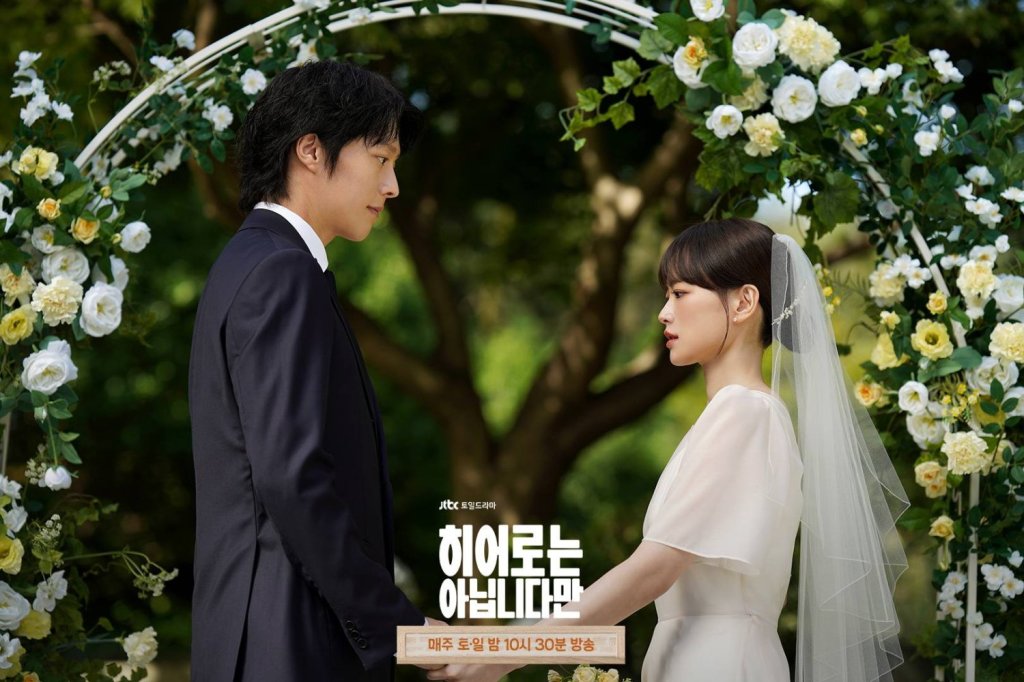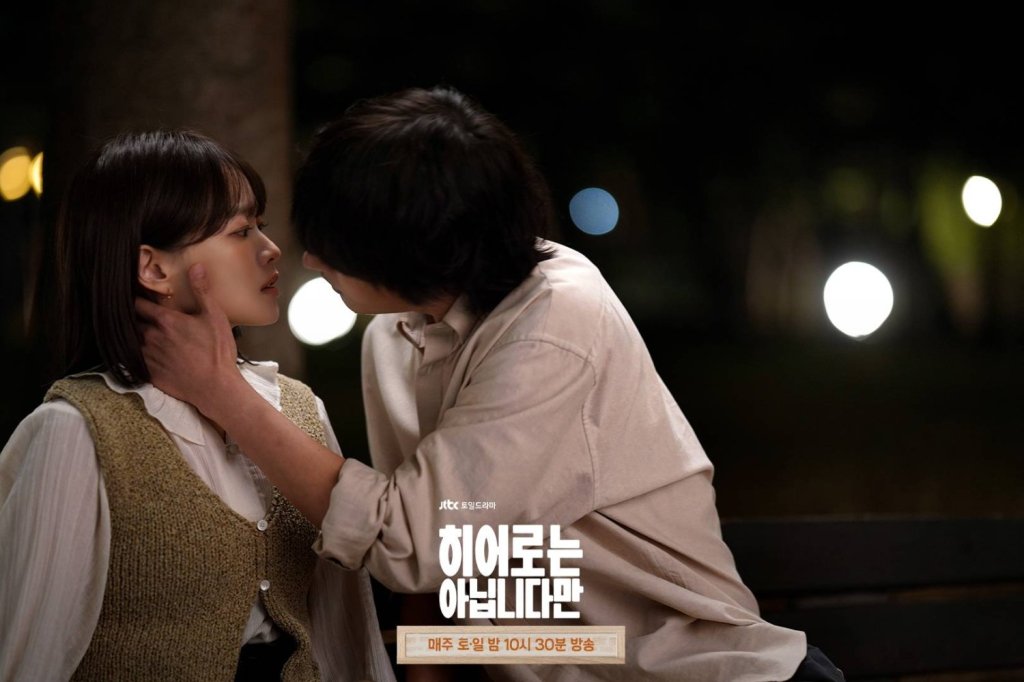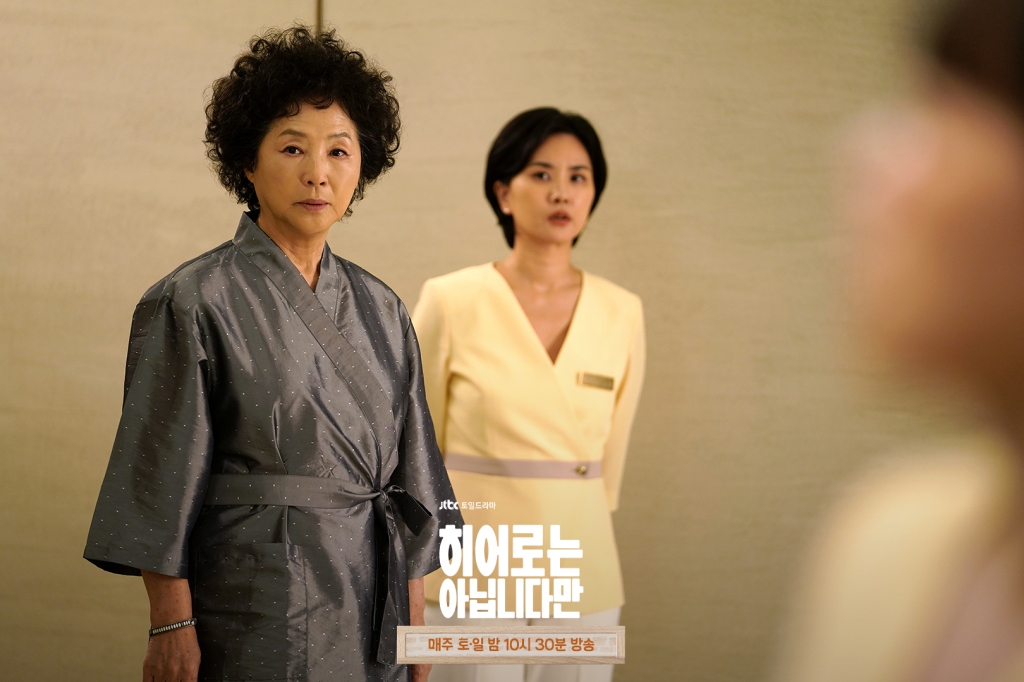[This review contains spoilers]
The Atypical Family is not your typical fantasy romance series. For starters, the characters aren’t cut outs of usual archetypes with each arc written with purpose. The plot is cohesive from start to finish and doesn’t ward off from its original goal. All its other elements (cinematography, music scoring, etc.) work together to make one of the most well-written series this year. Now, let me delve more into what made The Atypical Family an entertaining watch from its pilot episode to its satisfying finale.


The series revolves mainly around the Bok Family and a mysterious lady who might be the key to getting their superpowers back that they lost due to chronic diseases. In short, the superheroes need someone else to save them. But here’s where it gets more interesting: our female lead is actually a scammer. Do Da-hae (Chun Woo-hee) is a pawn in a well-crafted heist to get Bok’s fortune. Her target is to marry Bok Gwi-ju (Jang Ki-yong), the youngest son of the matriarch Bok Man-heum (Go Doo-shim) and Eu Sun-gu (Oh Man-seok), and eventually take over their properties. The whole “wooing Gwi-ju charade” is seamlessly interwoven to give its audience digestible bits of character introductions. The showrunners give out just enough details per episode to bait their audience and eventually root for the characters, particularly its main leads Gwi-ju and Da-hae.


When Da-hae meets the Bok’s maknae, Gwi-ju is already depressed. Our main hero is so empathic that he can’t focus on his own happiness if everyone else around him is suffering. He has fallen into spiraling events of trying and failing to save people important to him that eventually turned every happy moment in his life an insufferable memory. Da-hae, though, doesn’t mind Gwi-ju’s aloofness towards her because she has stronger motivation: freedom from her creditor.
Da-hae paints herself as this heartless swindler like the loan-shark-turned-sauna owner Baek Il-hong (Kim Geum-soon), who brought her up. As she spends more time with the Bok Family, it becomes more apparent that Da-hae isn’t just used to having people in her life who truly cares about her. She is just a victim of Il-hong’s manipulation and greed.


Even though she calls Il-hong ‘mom,’ the latter seem to treat her as a mere source of revenue. That’s why I’m not fully fond of Il-hong’s redemption arc later in the series. Grace (Ryu Abel) and Noh Hyeong-tae (Roy Choi) have redeemable traits to them but Il-hong remained dismissive of Da-hae in most episodes. I’m still glad however that she didn’t cause any trouble to Da-hae and eventually tried to make up for the cruel things she did to her. Despite that, I can’t fully forgive her for how she used Da-hae’s trauma for her benefit.


Chun Woo-hee’s portrayal of Da-hae proves why she is a chungmuro actor. She delivers emotionally impactful scenes but still makes the viewers swoon and laugh on lighter sequences. She even pulled off acting out as a high schooler during fire incident flashbacks – the inciting incident that connected their fates together.


In some sense, Da-hae and Gwi-ju are similar to each other which makes their romance satisfying to watch. I have a personal bias toward fantasy romance and this series has delivered everything I want in my favorite fusion genre.
The Atypical Family uses a closed-loop timeline wherein everything that happened to the characters has been predetermined. Unlike other time slip dramas like Hit the Top, The King: Eternal Monarch, or the more recent Lovely Runner, which uses the open loop timeline, Gwi-ju’s timeline doesn’t branch out into another timeline with an alternative present/future consequence. He is moving only in one unchangeable dimension. For easier visualization, you can just think of TAF’s timeline as one straight line and Gwi-ju just travels back and forth from the past and present. Any actions he made in the past timeline don’t affect the present timeline because he is actually part of that history. Hence, Gwi-ju’s iconic line – “Da-hae’s past is my future.”


Long story short, Gwi-ju and Da-hae are predestined to meet each other and help each other continue living for the better. They used the fantasy element to cleverly put these two characters on a romantic and healing journey. Da-hae became the reason for Gwi-ju to look at what’s in the present and not focus on what happened in the past. She is the trigger for Gwi-ju to put more effort into raising his daughter, Bok I-na (Park So-i). Still, the showrunners didn’t make it appear that a romance with Da-hae magically cure him of his depression overnight. I think this is an ongoing theme for all the characters in this series.


Gwi-ju’s older sister, Bok Dong-hee (Soo-hyun / Claudia Kim) lost her ability to fly allegedly because of her obesity. At the end of the series, however, she eventually discovers it’s a self-esteem issue more than anything else. Dong-hee’s subplot is actually one of the best things in this series. Yes, it was frustrating to see her go back again and again with her cheating jerk boyfriend Jo Ji-han (Choi Seung-yoon) but that eventually led to a very entertaining resolution scene with Grace and Da-hae. One might also question the series’ use of a fat suit but the series in the end, proved its critics wrong. Dong-hee’s journey is a commentary on self-image often ruined by one’s own family because of internalized weight stigma and other generational differences. She successfully got her powers back not because she shed off some weight but because she shed other people’s criticism about her out of her mind.


Sadly, the start of Dong-hee’s confidence issue is her own mother, Man-heum. The Bok matriarch is a stern parent to her children. In parental terms, she played the bad cop, while her husband played the good cop. I couldn’t put all the blame on her, however, as Man-heum is also grappling with her own powers. She has been accused of being greedy by stealing other people’s dreams but I think her motivation has always been about her family’s future not fortune. She can be easily misunderstood if not for Go Doo-shim’s portrayal. The veteran actress effectively shows Man-heum’s softer side that she often hides from her family. Her encounter with Da-hae has also helped her change for the better.


Another well-written character arc in this series is Bok I-na’s coming-of-age journey. Gwi-ju’s shy and awkward daughter is going through puberty at the same time her family is dealing with their own troubles. All the father-and-daughter scenes of I-na and Gwi-ju in this series are heartwarming. Jang Ki-yong did a good job portraying Gwi-ju’s struggles to be a good dad to I-na. Everyone should prepare some tissues to wipe their tears every time these two appear on screen. Meanwhile, I-na’s friendship with Han Jun-woo (Moon Woo-jin) is refreshing to watch, not to mention relatable. I also like that she and Goh Hye-rim (Kim Soo-in) eventually became true friends as I-na finally learned to accept the consequences of her powers. I-na’s interactions with samchon Noh Hyeong-tae (Roy Choi) and swindler ahjumma turned mother figure Da-hae are warm and sweet in their own way.

All these subplots together with the tightly plotted main story make The Atypical Family a worthwhile watch. The cinematography, especially its color grading, enhances the script with its visual storytelling. The musical scoring is top-notch. Every soundtrack played matches the tone of the scene, especially the instrumental from Lee Sora’s OST, I See You. All of the actors impressively portrayed their roles and made sure the well-written script wouldn’t go to waste. As I’ve said in the introduction, every element in this drama complements each other. From the story to the actors, the series is a well-made production that touches on the meaning of family and self-worth. I would not be surprised if The Atypical Family topped my list of favorite dramas this year.
Afterthoughts
– If only I could summon King Lee Geon to explain the quantum physics behind Gwi-ju’s timeslip I would have. But if you’re still baffled by the ending, here’s a simple visual explanation made by Daebak Podcast!
The Atypical Family’s ending is essentially a happy ending and a “three-way” salvation series. Da-hae helped Gwi-ju control his emotions. Gwi-ju saved Da-hae in the past. Bok Nu-ri summoned his father from the high school fire incident.
-I don’t mind getting a season 2 or a spin-off ala Strong Woman franchise that focuses on the next generation of Boks a.k.a Bok I-na
-The intro of Lee Sora’s I See You reminds me of Kyuhyun’s Confession is Not Flashy from Hospital Playlist. The instrumental of both songs complimented Gwihae and Gyeouljeong’s romantic scenes.
-Anyone else thinks Gwi-ju and Da-hae have a similar vibe to Howl and Sophie?

